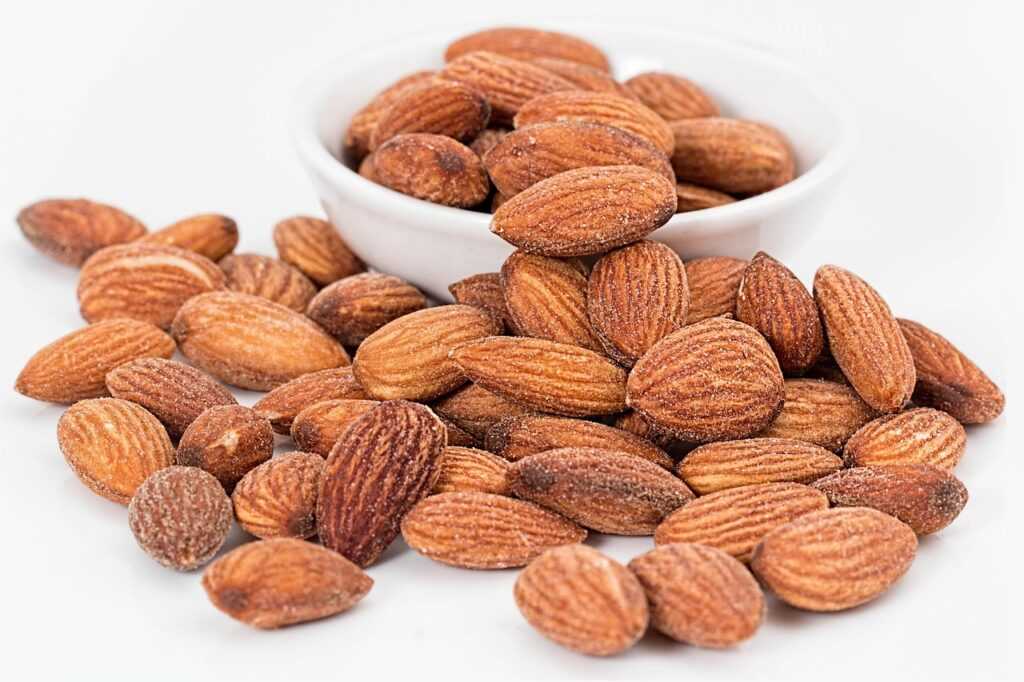Understanding Nutritional Needs at Different Ages
Infants
Infants require specific nutrients to support rapid growth and development. They need more fat, particularly omega-3 fatty acids, for brain development.
Formula or breast milk provides essential vitamins and minerals like vitamin D and calcium. Introducing solid foods around six months helps meet increasing energy demands.
Children
Children need balanced diets to support growth and cognitive development. Protein is crucial for muscle development; sources include lean meat and legumes.
Calcium and vitamin D support bone growth; dairy products and fortified foods are key. Ensuring they get plenty of fruits and vegetables helps build a healthy immune system.
Teenagers
Teenagers have increased nutrient needs to support physical changes and academic performance. Protein is vital for muscle development, found in sources like lean meats, fish, and tofu.
Iron is crucial for girls to replace menstrual losses and boys for muscle growth; red meat and leafy greens are good sources. B vitamins support energy levels.
Adults
Adults require nutrients to maintain body functions and prevent chronic diseases. Protein helps maintain muscle mass, found in poultry, fish, and beans.
Fiber supports digestive health and can be found in whole grains, fruits, and vegetables. Healthy fats from sources like olive oil and avocados support heart health. Staying hydrated is crucial.
Seniors
Seniors need nutrients that support aging bodies and prevent diseases. Calcium and vitamin D maintain bone health; dairy and fortified foods are excellent sources.
Vitamin B12 supports nerve function, present in meat and fortified cereals. Fiber helps with digestive health. Staying hydrated becomes increasingly important to prevent dehydration.
Pregnancy and Lactation
Pregnant and lactating women have unique nutritional needs. Folic acid is crucial for fetal development and prevents birth defects; leafy greens and fortified cereals are good sources.
Iron supports increased blood volume; sources include red meat and spinach. Protein is essential for tissue growth, obtainable from lean meats and legumes. Adequate calcium intake supports fetal bone development.
Essential Nutrients and Their Roles
Essential nutrients play specific roles in supporting growth, development, and overall health at every stage of life.
Vitamins and Minerals
Vitamins and minerals are crucial for maintaining bodily functions and promoting health. Vitamins like A, C, D, E, and K contribute to vision, immune function, bone health, antioxidant protection, and blood clotting, respectively.
Minerals such as calcium, iron, magnesium, and potassium support bone density, oxygen transport, muscle function, and fluid balance.
For instance, children need adequate calcium and vitamin D for proper bone growth, while pregnant women require higher iron intake to prevent anemia.
Proteins, Fats, and Carbohydrates
Proteins, fats, and carbohydrates are macronutrients that provide energy and structural components to the body.
- Proteins from sources like meat, beans, and dairy build and repair tissues.
- Fats, particularly omega-3 and omega-6 fatty acids, support brain function and cell structure.
- Carbohydrates, found in fruits, vegetables, and grains, are the body’s primary energy source.
- Carbs should come mainly from complex sources to ensure steady energy levels.
For example, teenagers need more protein for muscle development, while adults should focus on healthy fats to manage cardiovascular health.
Childhood Nutrition

Childhood nutrition requires a balanced intake of vitamins, minerals, and macronutrients to support growth and development during these formative years.
Early Development Nutritional Needs
In early development, children need high amounts of proteins, fats, and essential vitamins. From birth to age two, breast milk or formula provides critical nutrients.
Proteins support tissue growth. Fats, particularly omega-3 fatty acids, aid brain development. Vitamin D and calcium are crucial for bone growth. Introducing solid foods around six months offers additional nutrients.
Pureed vegetables, fruits, and grains introduce vitamins A, C, and E, as well as important minerals like potassium and iron.
School-age Nutritional Focus
School-age children require a diet rich in macronutrients and micronutrients to sustain energy levels and cognitive function.
- Proteins from lean meats, beans, and dairy support muscle development.
- Complex carbohydrates from whole grains and vegetables provide slow-releasing energy.
- Iron-rich foods such as spinach and red meat prevent anemia, which can affect concentration.
- Vitamins and minerals, including folate, zinc, and vitamin C, bolster the immune system.
Consistent healthy snacks, like nuts and fruits, help maintain stable blood sugar levels and focus during school activities.
Teenage Nutritional Challenges
Teenagers experience significant physical and emotional changes that increase their nutritional needs. Key nutrients support growth spurts, cognitive development, and overall health.
Navigating Increased Demand
- During adolescence, the body demands more calories and nutrients due to rapid growth.
- Protein supports muscle development and repair. Carbohydrates provide essential energy for daily activities and brain function.
- Fats, particularly omega-3 and omega-6 fatty acids, contribute to brain development.
- Teenagers also require higher amounts of vitamins and minerals.
For instance, calcium and vitamin D are crucial for bone health, while iron supports increased blood volume and oxygen transport. It’s essential to include diverse food sources such as dairy, lean meats, whole grains, fruits, and vegetables.
Managing Dietary Choices
Teenagers often face dietary challenges due to busy schedules, peer pressure, and exposure to fast food. Encouraging healthy eating habits is critical.
Balanced meals should include lean proteins like chicken or beans, complex carbohydrates such as brown rice or whole-grain pasta, and healthy fats from sources like avocados or nuts.
Adolescents should reduce sugary drinks and snacks, opting instead for water, fruits, and vegetables. Education on reading nutrition labels and making informed choices can empower them to maintain a nutritious diet amidst various temptations.
Optimizing teenagers’ nutrition involves understanding their increased demands and guiding their dietary choices effectively.
Adult Nutrition
Adults need balanced nutrition to maintain health and prevent chronic diseases. Meeting these needs requires understanding dietary essentials and lifestyle choices.
Maintaining Health Through Diet
Maintaining health as an adult involves ensuring a diet rich in essential nutrients. Include a variety of fruits, vegetables, whole grains, and lean proteins. Choose healthy fats like those found in nuts, seeds, and fish.
- Proteins: Adults need about 46-56 grams of protein daily. Sources include lean meats, legumes, and dairy products.
- Carbohydrates: Approximately 45-65% of daily caloric intake should come from carbohydrates. Opt for complex carbs like whole grains.
- Fats: Aim for 20-35% of total calories from fats, focusing on unsaturated fats while limiting saturated and trans fats.
- Vitamins and Minerals: Focus on foods rich in vitamins A, D, E, C, and minerals like calcium and iron.
Hydration is also key, with adults needing around 3.7 liters (men) and 2.7 liters (women) of fluids daily, including water from food. Regular physical activity complements a healthy diet, promoting metabolic health and weight management.
Nutritional Needs During Pregnancy
Pregnant women have increased nutritional requirements to support fetal development and maternal health. According to the CDC, additional calories and specific nutrients are necessary.
- Calories: Add approximately 300 extra calories per day during the second and third trimesters. Opt for nutrient-rich foods to meet this need.
- Proteins: Increase intake to about 71 grams per day. Sources include lean meats, eggs, and legumes.
- Folic Acid: 600 micrograms daily from foods like leafy greens and fortified cereals help prevent birth defects.
- Iron: Aim for 27 milligrams daily to support increased blood volume. Red meat, poultry, and iron-fortified cereals are good sources.
- Calcium: 1,000 milligrams per day supports fetal bone development. Dairy products and leafy greens are optimal sources.
Consult healthcare providers to tailor dietary plans according to specific health needs, ensuring both mother and baby get essential nutrients.
Older Adults’ Nutritional Concerns
Older adults face unique nutritional challenges due to various physiological changes. They need to adapt their diets to maintain health and quality of life.
Adjustments for Metabolic Changes
Metabolism slows down with age, reducing calorie needs. Older adults require fewer calories but must focus on nutrient-dense foods to prevent deficiencies.
Protein intake is crucial for muscle maintenance. I recommend including lean meats, legumes, and dairy products in meals. Vitamin D and calcium are vital to bone health.
Sources like fortified cereals, dairy, and supplements help meet these needs. Absorption of nutrients like vitamin B12 diminishes, requiring fortified foods or supplements.
Importance of Hydration and Fiber
Dehydration risk increases with age due to a reduced sense of thirst. Older adults should drink water regularly throughout the day. Fiber intake aids digestive health and prevents constipation.
Foods like whole grains, fruits, and vegetables are excellent fiber sources. I suggest aiming for 25-30 grams of fiber daily. Hydration and fiber also support cardiovascular health, lowering cholesterol levels and aiding weight management.
Including a variety of fiber-rich foods ensures a balanced diet and optimal digestive function.

 Sarah Ainslie is an experienced article writer who has played a crucial role in the development of Toddler Health Roll. With a passion for child health and wellness, Sarah's writing offers parents insightful and actionable advice on nurturing their toddlers. Her articles are well-researched and thoughtfully crafted, providing practical tips on everything from nutrition to emotional well-being, making her contributions invaluable to the platform.
Sarah's dedication goes beyond just writing; she has been instrumental in shaping the content and direction of Toddler Health Roll, ensuring that it meets the needs of parents seeking reliable guidance. Her work has helped establish the platform as a trusted resource for families, offering comprehensive support for raising happy, healthy toddlers.
Sarah Ainslie is an experienced article writer who has played a crucial role in the development of Toddler Health Roll. With a passion for child health and wellness, Sarah's writing offers parents insightful and actionable advice on nurturing their toddlers. Her articles are well-researched and thoughtfully crafted, providing practical tips on everything from nutrition to emotional well-being, making her contributions invaluable to the platform.
Sarah's dedication goes beyond just writing; she has been instrumental in shaping the content and direction of Toddler Health Roll, ensuring that it meets the needs of parents seeking reliable guidance. Her work has helped establish the platform as a trusted resource for families, offering comprehensive support for raising happy, healthy toddlers.
